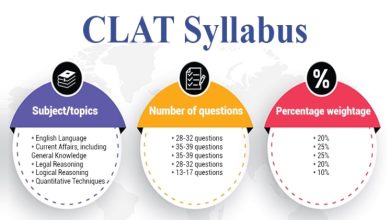How Early Childhood Education Can Gear Up Your Child for the Future

Early childhood education (ECE) holds a pivotal role in shaping a child’s cognitive, emotional, and social development.
As parents and educators, we have a remarkable opportunity to lay the foundation for a successful and fulfilling future by investing in high-quality early education.
In this blog post, we will delve into the numerous ways in which early childhood education can gear up your child for the challenges and opportunities of the future.
Brain Development and Learning Potential
The early years of a child’s life are marked by rapid brain development. During this period, a child’s brain forms trillions of neural connections, creating the framework upon which all future learning is built.
Quality ECE programs are designed to stimulate these connections through engaging activities that promote cognitive growth.
Through play-based learning, exploration, and hands-on experiences, children develop essential cognitive skills such as problem-solving, critical thinking, and creativity, which are all crucial for success in the future.
Social and Emotional Intelligence
Early childhood education in Singapore also plays a vital role in nurturing a child’s social and emotional intelligence. Interpersonal skills, empathy, and self-regulation are fundamental attributes that enable individuals to thrive in personal and professional relationships.
ECE environments encourage collaboration, sharing, and communication, helping children develop strong social skills from an early age.
Emotional intelligence, which includes recognizing and managing one’s own emotions as well as understanding others’, is cultivated through positive interactions with peers and caregivers.
Language and Communication Skills
Language development is another key aspect that early childhood preschool addresses. The ability to communicate effectively is a critical skill in the modern world, both in terms of academic success and future career prospects.
Early exposure to rich language environments, storytelling, and conversations enhances vocabulary, comprehension, and articulation skills.
This foundation paves the way for seamless language acquisition as children progress through their education and into adulthood.
Cultivating a Love for Learning
A strong foundation in early childhood education can ignite a lifelong love for learning. When children are introduced to the joy of discovery and exploration at a young age, they are more likely to approach new challenges with enthusiasm and curiosity.
ECE programs emphasize learning through play, allowing children to develop a positive attitude towards education. This attitude can have a lasting impact, influencing their educational choices and willingness to engage in continuous learning throughout their lives.
Adapting to Technological Advancements
The future is undeniably intertwined with rapid technological advancements. Early childhood education equips children with the foundational skills required to navigate a technology-driven world.
Basic digital literacy, critical thinking, and problem-solving abilities are nurtured in ECE settings, enabling children to adapt to new technologies and embrace digital tools confidently.
Global Awareness and Cultural Competence
In today’s interconnected world, cultural competence and global awareness are essential attributes.
Early childhood education exposes children to diverse cultures, traditions, and perspectives, fostering open-mindedness and empathy.
This prepares them to collaborate with individuals from various backgrounds and navigate the complexities of an increasingly globalized society.
Resilience and Adaptability
Life is filled with uncertainties and challenges. Early learning childcare center helps children develop resilience and adaptability by teaching them how to cope with change, setbacks, and failures.
Through structured activities and free play, children learn to overcome obstacles, manage frustration, and develop a growth mindset. These skills are invaluable for navigating the ups and downs of life and pursuing ambitious goals.
Laying the Foundation for Academic Success
Research consistently demonstrates that children who participate in quality early childhood education programs are more likely to achieve academic success later in life.
The cognitive, social, and emotional skills cultivated during the early years provide a solid foundation for formal education.
ECE enhances children’s readiness for school, setting the stage for a smoother transition to formal learning environments.
Nurturing Inquisitiveness and Creativity
Children are naturally curious and imaginative. ECE harnesses this innate curiosity by encouraging exploration and creativity.
Engaging activities, such as art, music, and storytelling, stimulate a child’s imagination, fostering the development of innovative thinking.
In a world that increasingly values innovation and problem-solving, these qualities are invaluable for navigating complex challenges in various domains.
Critical Thinking and Decision-Making
Future success demands critical thinking and sound decision-making. Top childcare in Singapore cultivates these skills by presenting children with opportunities to analyze, evaluate, and make choices.
Whether it’s solving puzzles, collaborating on projects, or resolving conflicts during playtime, children learn to weigh options and make informed decisions—an ability that proves indispensable as they mature into adults.
Global Citizenship and Cultural Competence
In an increasingly interconnected world, cultural competence and global awareness are no longer optional—they are imperative.
ECE introduces children to diverse perspectives, promoting acceptance and understanding of various cultures and lifestyles.
This early exposure fosters open-mindedness and empathy, qualities that are essential for effective communication and collaboration in an interconnected global society.
Technological Fluency
Technology is an integral part of modern life, and its influence will only continue to grow. ECE programs incorporate age-appropriate technology experiences that help children develop digital literacy skills.
This familiarity with technology not only prepares them for the digital landscape they will encounter but also encourages responsible and ethical use of digital resources.
Laying the Foundation for Health and Well-being
Physical health and well-being are essential for optimal learning and performance. Early childhood education emphasizes the importance of healthy habits, nutrition, and physical activity.
Children who establish a strong foundation in these areas during their early years are more likely to adopt healthy lifestyles, reducing the risk of chronic health issues and enabling them to thrive in all aspects of life.
Parent-Child Bonding and Partnership
ECE involves not just educators but also parents and caregivers. These partnerships foster a deeper understanding of the child’s development and learning needs.
Parents become active participants in their child’s educational journey, gaining insights into their strengths, challenges, and interests.
This collaboration not only supports the child’s holistic growth but also strengthens the parent-child bond.
Conclusion
Investing in early childhood education is a powerful strategy for gearing up your child for the future. The formative years of a child’s life offer a unique window of opportunity to shape their cognitive abilities, emotional intelligence, and social skills.
By providing a nurturing and enriching environment through quality ECE programs, we empower children to thrive in a rapidly changing world.
As parents, caregivers, and educators, our collective efforts to prioritize early childhood education can lead to brighter futures for the next generation.





